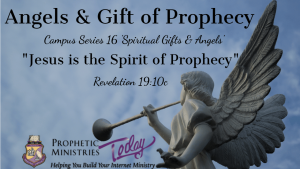The Word of Knowledge
Holy Spirit & Spiritual Gifts: All Who are Skillful & Wise-hearted
Bazelel was the first person specifically mentioned by God as having been filled with His Spirit. Bazelel was also granted a myriad of gifts and skills to fulfill his role as Chief Architect of the Tabernacle. But, he did not complete this work alone, and was blessed with a godly assistant and many talented artisans to work beside him. Even today, the Church cannot be built up but a few, but by the many hands, talents, and contributions of the Body of Christ.
Before construction of the Tabernacle began, God commanded Moses to take contributions from all those who had a “willing heart”. The necessary materials included valuable metals, dyes, skins, weaving material, wood, oil, spices, and precious stones. Every one whose heart stirred him, and whose spirit made him willing, brought their freewill offerings (ref. Exodus 35:4-29). There was such an outpouring of generously donated materials that the people had to be restrained from giving more (ref. Exodus 36:5-7).
God instructed Moses to appoint Bezalel, as Chief Architect, over the construction of the Tabernacle. He was filled with the Spirit of God, in Wisdom, in Understanding, in Knowledge, and was a master craftsman in carpentry, metalworking, weaving, stone cutting, dying, and incense blending. His Deputy Architect, Oholiab, was also a skilled artisan, but most importantly, both he and Bazelel were blessed with hearts filled with the desire to teach.
Though there was undoubtedly other talented workers amongst the Israelites, it would be the previous brick makers, imbued with wise hearts desiring to give additional gifts of their work to the construction of the Tabernacle who would be taught the skills of “the engraver, and the cunning workman, the embroiderer, in blue, purple, and scarlet, and in fine linen, and of the weaver, to work in gold, silver, and copper, cutting and setting of stones, carving of wood, and of any of those that devise cunning and artistic works” (Exodus 35:32-35).
Bazelel and Oholiab, and every wise-hearted man, in whom the Lord put Wisdom and Understanding to know how to do skilled work, and every one whose heart was stirred to come help with construction, worked together to build the Tabernacle’s structure, the holy furniture and instruments, the priestly robes, the oil and incense for offerings, amongst all the other things God had instructed them to craft (Exodus 36:1-2).
After the assembly was completed on the first day, of the first month, the Glory of the Lord filled the Tabernacle (ref. Exodus 40: 34-35). The Tabernacle was constructed by the freely given gifts and talents of the people of Israel and served as a physical space for God’s Glory to dwell. Likewise, the Church Body must be built up by our spiritual gifts so the Holy Spirit can dwell amongst us.
Just as there was a variety of materials and artisanal talents required to construct the Tabernacle, “there are different kinds of gifts, but the same Spirit distributes them. There are different kinds of service, but the same Lord. There are different kinds of working, but in all of them and in everyone it is the same God at work. Each one is a manifestation of the Spirit and given for the common good” (1 Corinthians 12:4-7).
Though Bazelel was an extremely impressive and gifted man and filled with the Holy Spirit, it took donations of physical materials and artisanal skills from all God’s People to construct the Tabernacle. Today, each member of the Body of Christ, whom should all be filled with the Holy Spirit, must contribute to His Kingdom through the application of our individual spiritual gifts. It is only then, that our families, ministries, and communities can fully experience the Glory of the Lord.
Prepared by, Kent Simpson, Apostolic Prophet & Eric Sepulveda, PMT Administrator



